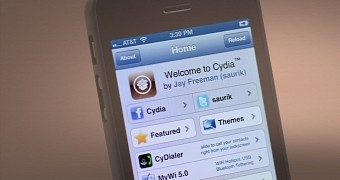There was a time when the first thing tech-savvy iPhone owners used to do after buying a new smartphone was to jailbreak it and escape Apple’s locked playground.
But with the release of new iPhone generations, more secure iOS versions, and even more restrictions in place, it became increasingly difficult to jailbreak Apple’s devices, forcing many enthusiasts, hackers, and researchers either to stick with the locked version of iOS or change teams and go for Android.
And now it’s even more obvious that the days of iPhone jailbreaking are numbered, as two of the biggest repositories on Cydia are going dark – Cydia repositories were used by the jailbreaking community as third-party sources to download content for unlocked iPhones.
ModMyi and ZodTTD/MacCiti repositories both announced they’re shutting down, leaving users who don’t want to give up on this hobby with just one major option: BigBoss. It goes without saying that there are now concerns that BigBoss could be retired as well, though no information from administrators has been provided just yet.
The death of iPhone jailbreaking
On the other hand, maintaining Cydia repositories these days doesn’t make much sense, especially because methods to jailbreak new iPhones have barely made the rounds.
Even though skilled hackers did find ways to unlock the recent versions of iOS, they never released the code, most likely because they worked with Apple to patch the vulnerabilities that could have allowed iPhones to be jailbroken.
At the same time, user interest in jailbreaking iPhones has decreased substantially in the last few years, especially as security concerns increased.
Apple has nothing to share on the news that iPhone jailbreaking might be dying, but the company can’t be anything but pleased with it, mostly because this could be a confirmation that its devices are becoming harder to crack. Apple, however, never seemed to be too bothered by the community jailbreaking its devices, despite the company recommending against this practice and patching flaws that were used to unlock iPhones.

 14 DAY TRIAL //
14 DAY TRIAL //